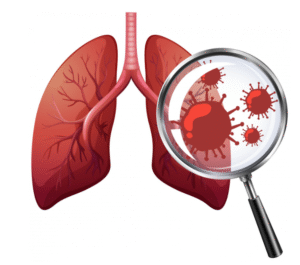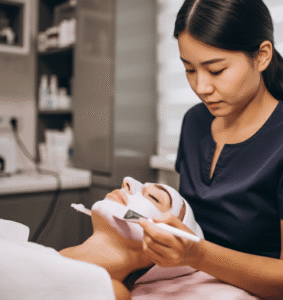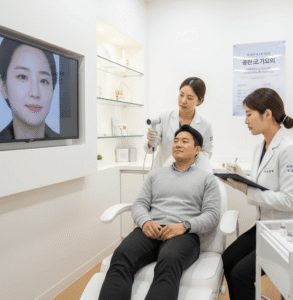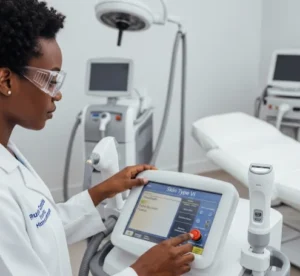Overview
Compulsive sexual behavior, also known as hypersexual disorder or sexual addiction, is a condition where individuals experience uncontrollable sexual urges, fantasies, or behaviors that interfere with daily life, relationships, and emotional well-being. It is not simply a high sex drive; rather, it involves a loss of control, repeated unsuccessful attempts to stop, and negative consequences in personal and social functioning.
In Korea, awareness and treatment of compulsive sexual behavior have increased in recent years. While traditional cultural attitudes may stigmatize open discussions about sexual health, modern psychiatric and psychological services, alongside specialized counseling programs, are available. Korean medical centers often integrate Western psychiatric practices with holistic and behavioral therapy approaches to help patients manage compulsive sexual behaviors in a private and confidential setting.
What is Compulsive Sexual Behavior?
Compulsive sexual behavior refers to persistent and excessive engagement in sexual activities—whether physical acts, pornography use, cybersex, or masturbation—despite negative consequences. It is often classified under impulse control disorders or behavioral addictions. People with this condition may spend hours daily engaged in sexual activities or consumed by sexual thoughts, neglecting work, relationships, and responsibilities.
The disorder is not officially classified as a distinct diagnosis in all medical systems, but it is increasingly recognized worldwide as a mental health condition requiring professional intervention.
Symptoms
Symptoms of compulsive sexual behavior can vary but often include:
- Intense and persistent sexual urges or fantasies
- Inability to control sexual behaviors despite attempts to stop
- Engaging in risky or inappropriate sexual activities
- Spending excessive time on sexual activities (online or offline)
- Neglecting work, studies, or family responsibilities due to sexual behavior
- Using sexual activity as a coping mechanism for stress, anxiety, or depression
- Experiencing guilt, shame, or distress after sexual activity
- Escalation of sexual activity over time, requiring more extreme behaviors to feel satisfied
Causes
The exact cause of compulsive sexual behavior is not fully understood, but several contributing factors have been identified:
- Biological factors – imbalances in brain chemicals such as dopamine and serotonin
- Neurological conditions – certain brain disorders or injuries may affect impulse control
- Psychological factors – trauma, abuse, depression, anxiety, or low self-esteem
- Addiction pathways – similar to substance use disorders, sexual activity may activate the brain’s reward system
- Social and cultural influences – exposure to pornography, peer pressure, or relationship difficulties
- Genetic predisposition – family history of addictive or compulsive disorders may increase risk
Risk Factors
Factors that may increase the likelihood of compulsive sexual behavior include:
- History of childhood abuse or trauma
- Coexisting mental health conditions (depression, bipolar disorder, anxiety disorders)
- Substance abuse problems
- Chronic stress or poor coping mechanisms
- Lack of healthy social relationships or isolation
- Personality traits such as impulsivity or high sensation-seeking behavior
Complications
If left untreated, compulsive sexual behavior can lead to serious personal and social issues:
- Relationship breakdowns and divorce
- Financial problems due to risky or excessive spending on sexual activities
- Legal issues related to inappropriate or illegal sexual conduct
- Sexually transmitted infections (STIs) from unsafe practices
- Emotional consequences such as guilt, shame, depression, or suicidal thoughts
- Reduced productivity and work performance
- Escalation to dangerous or harmful sexual behaviors
Prevention
While not all cases can be prevented, strategies to reduce risk include:
- Maintaining strong mental health and addressing psychological issues early
- Building healthy relationships and communication skills
- Limiting exposure to unhealthy or excessive sexual content
- Practicing stress management techniques such as meditation, exercise, or hobbies
- Seeking counseling when sexual urges or behaviors feel uncontrollable
- Joining support groups for addiction or compulsive behaviors
Treatment Options in Korea
1. Diagnosis
Diagnosis of compulsive sexual behavior in Korea typically involves:
- Psychiatric evaluation – assessment of sexual behaviors, mental health history, and lifestyle
- Psychological testing – to determine severity and identify coexisting disorders
- Medical examination – to rule out neurological or hormonal conditions
- Confidential counseling sessions – ensuring privacy and comfort for patients
2. Psychological and Behavioral Therapies
- Cognitive Behavioral Therapy (CBT) – helps patients recognize triggers and develop healthier coping strategies
- Dialectical Behavioral Therapy (DBT) – teaches emotional regulation and impulse control
- Group therapy – provides peer support and accountability in a confidential setting
- 12-step recovery programs – similar to those used for other addictions
- Family or couples counseling – to rebuild trust and improve communication
3. Medication Options
In Korea, psychiatrists may prescribe medications to help manage compulsive sexual behavior:
- SSRIs (Selective Serotonin Reuptake Inhibitors) – reduce sexual urges and help with anxiety/depression
- Mood stabilizers – used when compulsive behavior is linked to bipolar disorder
- Anti-androgen medications – in severe cases, to lower sexual drive
- Naltrexone – sometimes prescribed to reduce addictive impulses
4. Holistic and Supportive Care
- Mindfulness and meditation therapy – widely used in Korean clinics for mental health disorders
- Stress management programs – yoga, relaxation therapy, and lifestyle modifications
- Online and telemedicine counseling – increasingly available in Korea for patients seeking discreet treatment
- Integration with traditional Korean medicine (Hanbang) – some centers combine herbal remedies and acupuncture to reduce stress and improve overall balance
5. Rehabilitation and Long-term Support
- Regular follow-up sessions with psychiatrists and psychologists
- Support groups for individuals with compulsive disorders
- Educational programs to build healthier sexual attitudes and behaviors
- Lifestyle modification plans focusing on work-life balance, fitness, and social engagement













